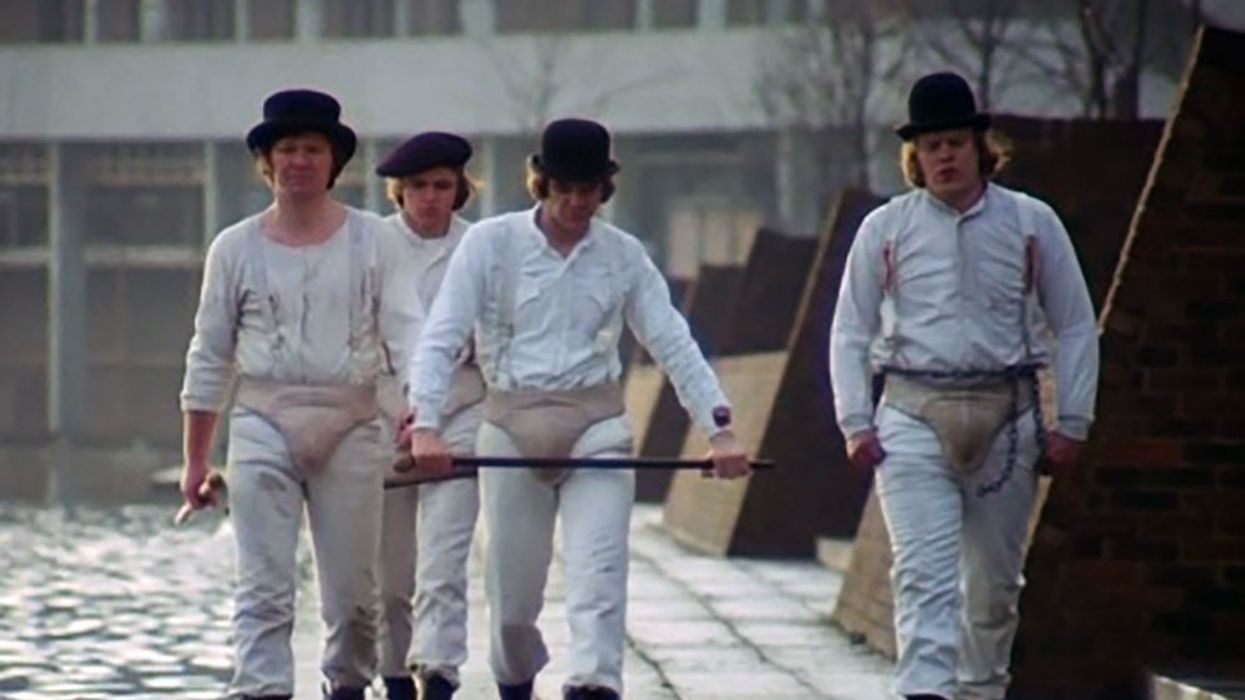Malcolm McDowell Finally Accepts 'A Clockwork Orange' Is a Classic
Have you ever had a difficult relationship with your work?

We just passed the 50th anniversary of A Clockwork Orange, and its biggest star is speaking out. Malcolm McDowell had no idea how important and controversial the movie would be when Stanley Kubrick cast him in the lead role. But 50 years later, he's ruminating on where it brought him.
McDowell told NME, “For the first 10 years after I made it I resented it. I was sick of it. I didn’t want to talk about the fucking thing, I was over it. I said: ‘Look, I’m an actor, I got to play a great part, I’m moving on.’ Then I came to the realization that it was a masterwork, and I was very, very much part of it. You may as well just accept it and enjoy it.”
In a story of when he first met Kubrick, McDowell said, “I asked him why he cast me actually. He thought about it and said: ‘You can exude intelligence on the screen.’ Alex is a thug, but he’s not just a thug. Anyone that loves classical music can’t be all that bad, let’s face it. So that was what he was looking for. He put the book down, [Kubrick] told me. He couldn’t cast it. But then he saw if…., and [Kubrick’s wife] Christiane told me that he replayed my entrance four or five times, and after the fourth time he looked at her and said: ‘We found our Alex.’”
And just like that, McDowell's career was about to change. But he still had to find a way to embody the role.
“I knew it was a great role and I didn’t realize how to do it... I found it as I went. I didn’t realize it was going to be such a stylized part but I started to get that very soon, that it was no good playing this in a naturalistic way. This had to have a style. It was almost Shakespearean."
Of course, McDowell had no idea at the time it was a role that would change cinema and censorship forever. He said he had no idea what was coming.
“No. Of course, it’s psychologically disturbing but I’d just seen Sam Peckinpah’s The Wild Bunch, the Wild West one where everything is mass shootings in slow motion. Brilliant. Compared to [that], it’s a Disney movie. The violence of the film was nothing, they kick an old man and that’s about it. I mean, even the rape of Bryce’s wife, Alex does ‘Singin’ in the Rain’ for Christ’s sake.”
So what about the legacy of this movie? The violence and the conversations about it became prevalent across the globe.
McDowell says, “There was more violence on the news, it was the time of Vietnam. If you wanted to see real violence and you wanted to see babies being burned with napalm, turn on the news. Clockwork Orange was more psychologically disturbing: Big Brother, the government, dictating behavior—and that’s fascism, isn’t it? In fact, going over to Stanley’s before the movie, he’d always have these Nazi propaganda things out. They were unbelievable, [documents where] they equated Jews with rats and things like that. I thought he was gonna use them in the Ludovico treatment [scenes] but he copped out in the end. I guess he thought it was too much.”
And still, the movie lives on today.
“Clockwork has always had an audience,” says McDowell. “It’s always had the next generation of kids going to college, finding the movie—and it becomes a rite of passage.”
When was the first time you saw this movie? Do you think its ongoing message has something to say about society today?
Let us know in the comments.











